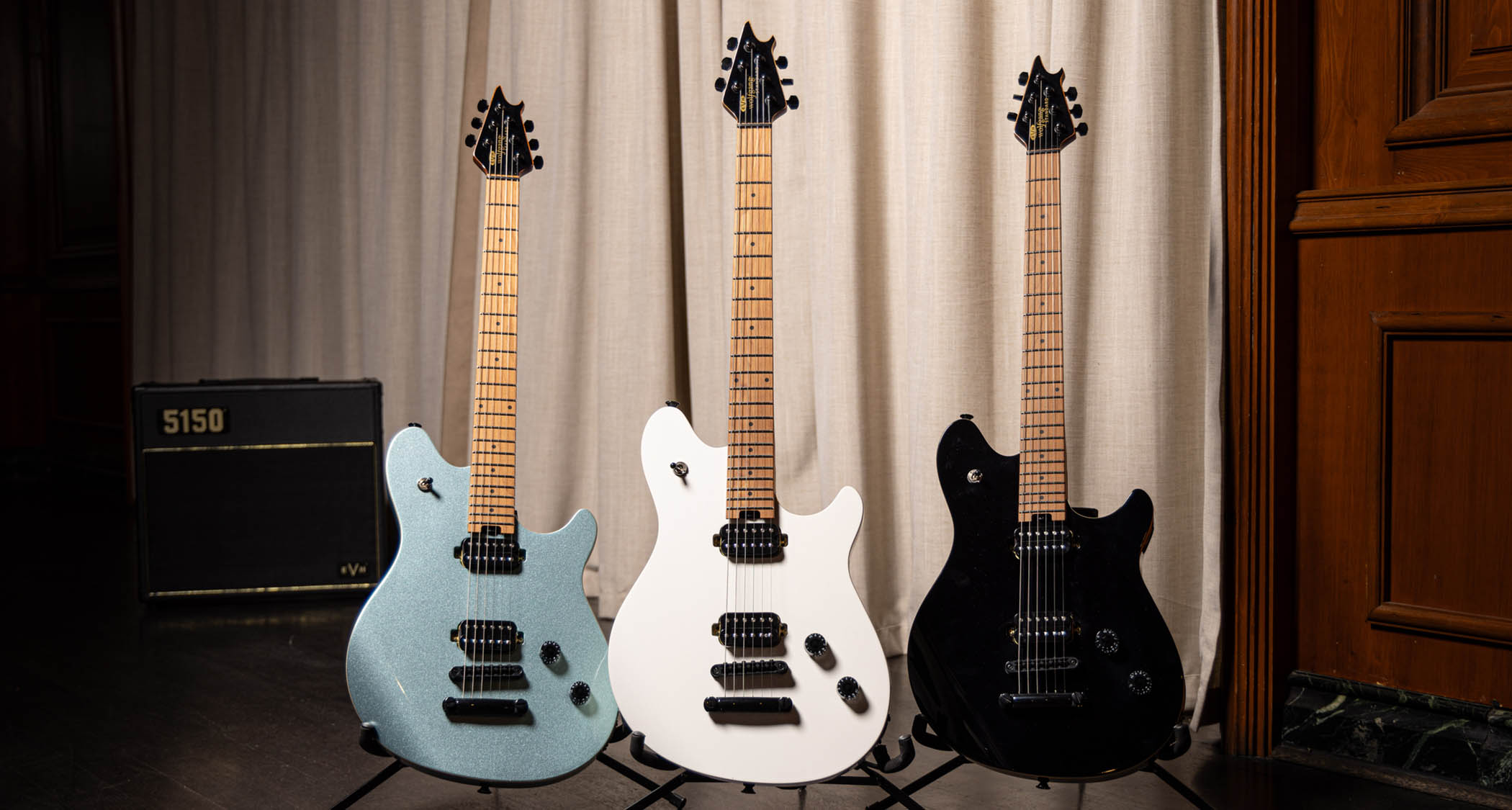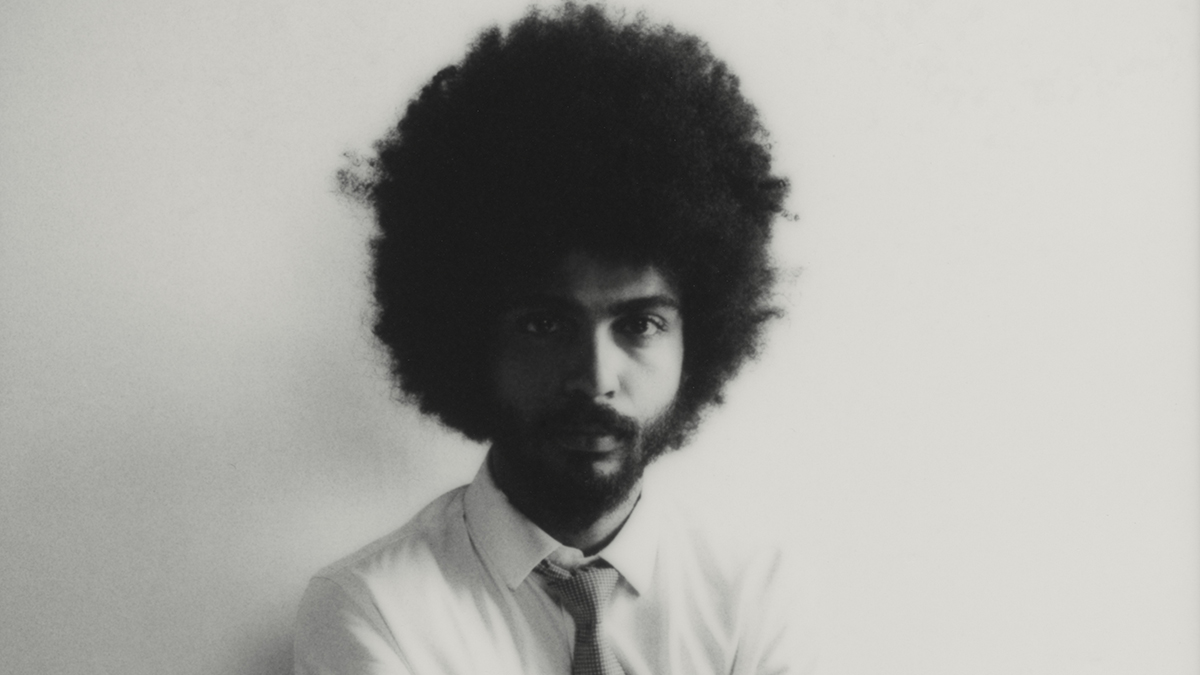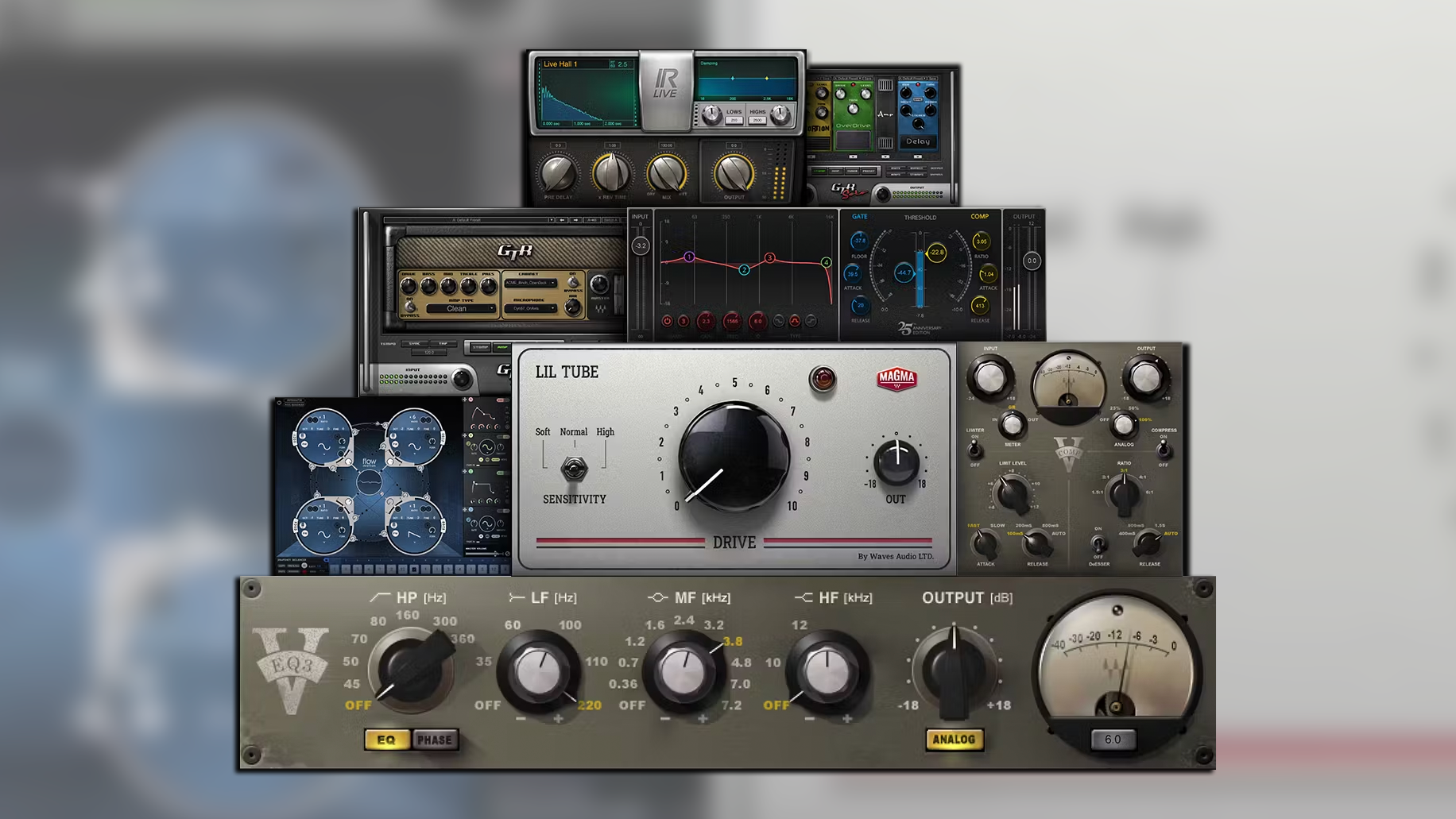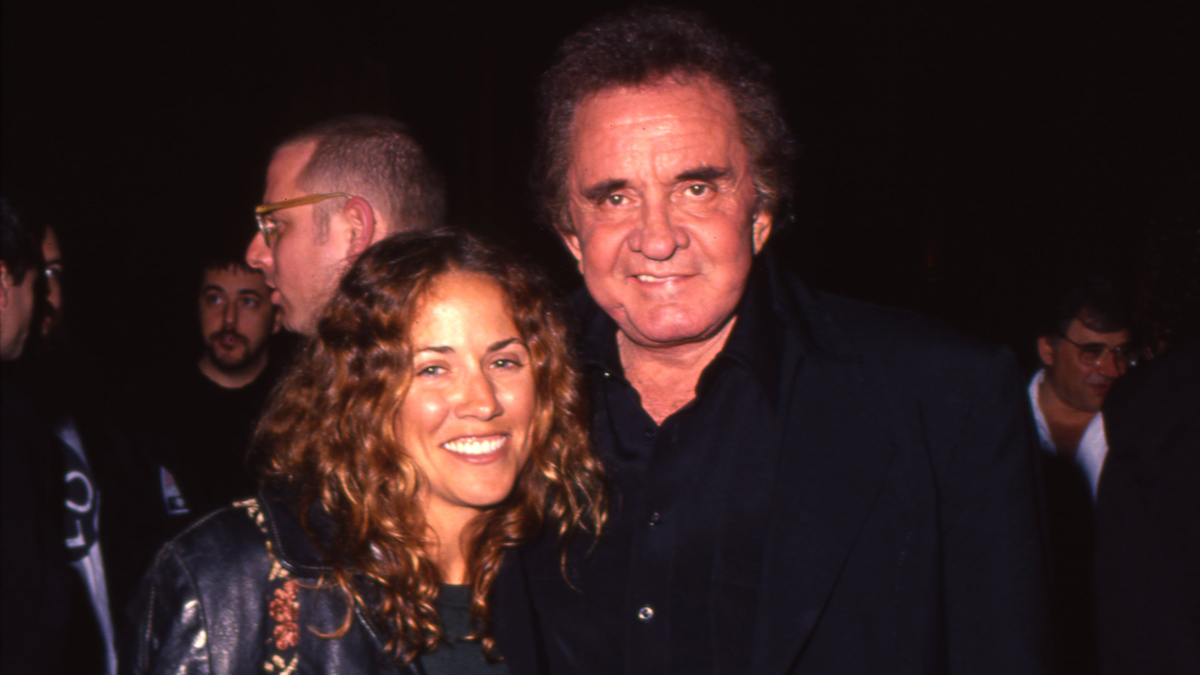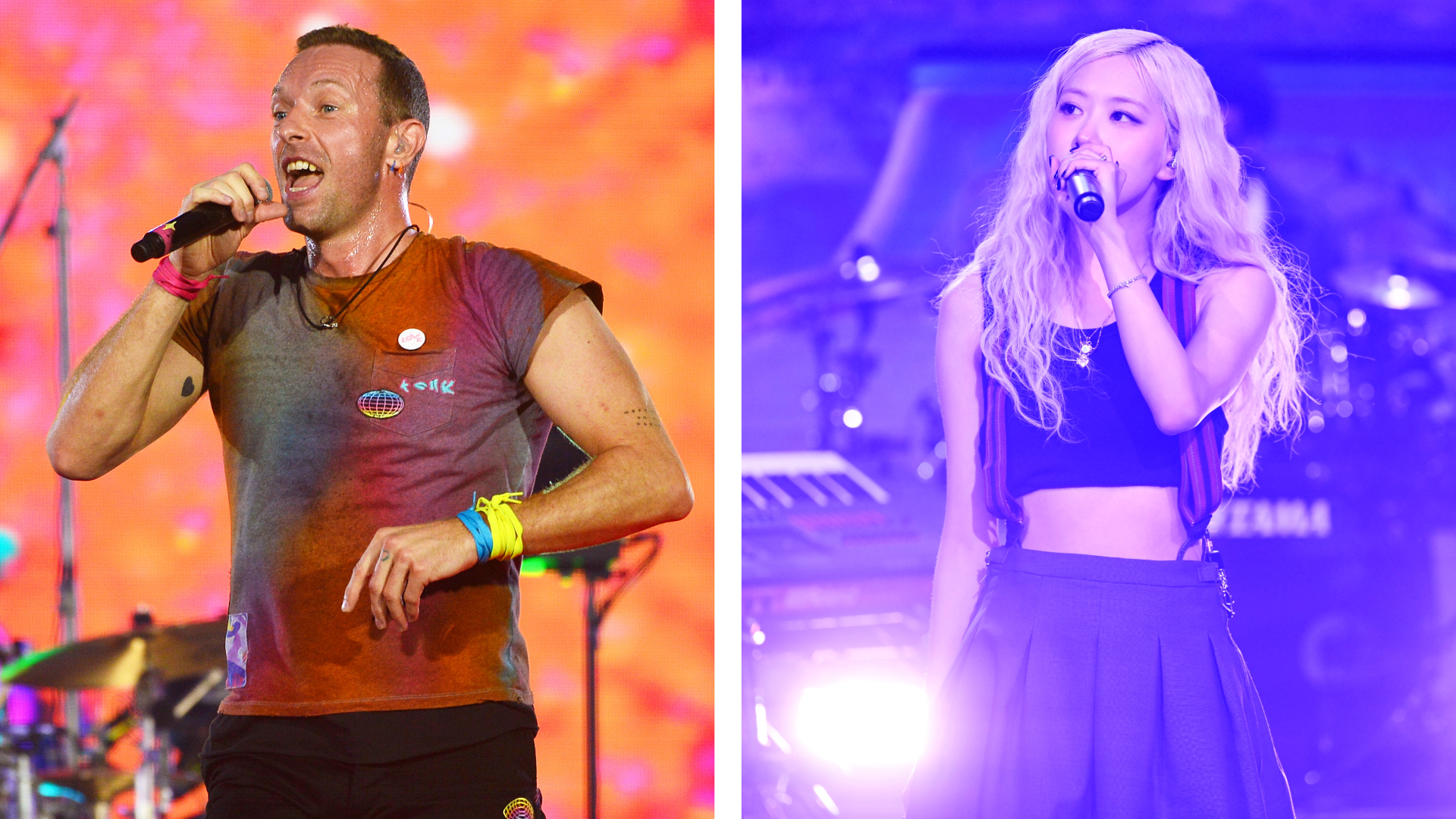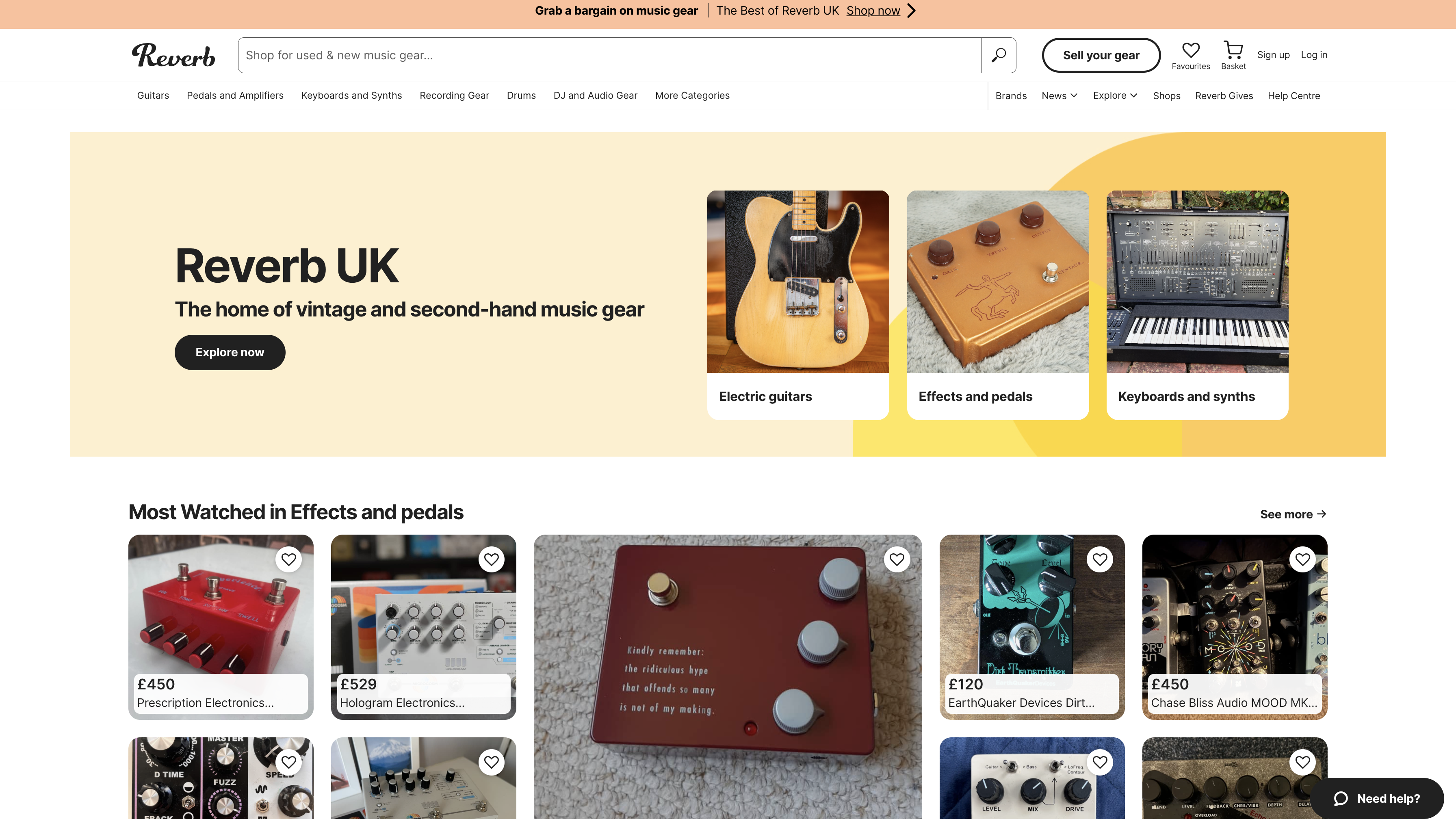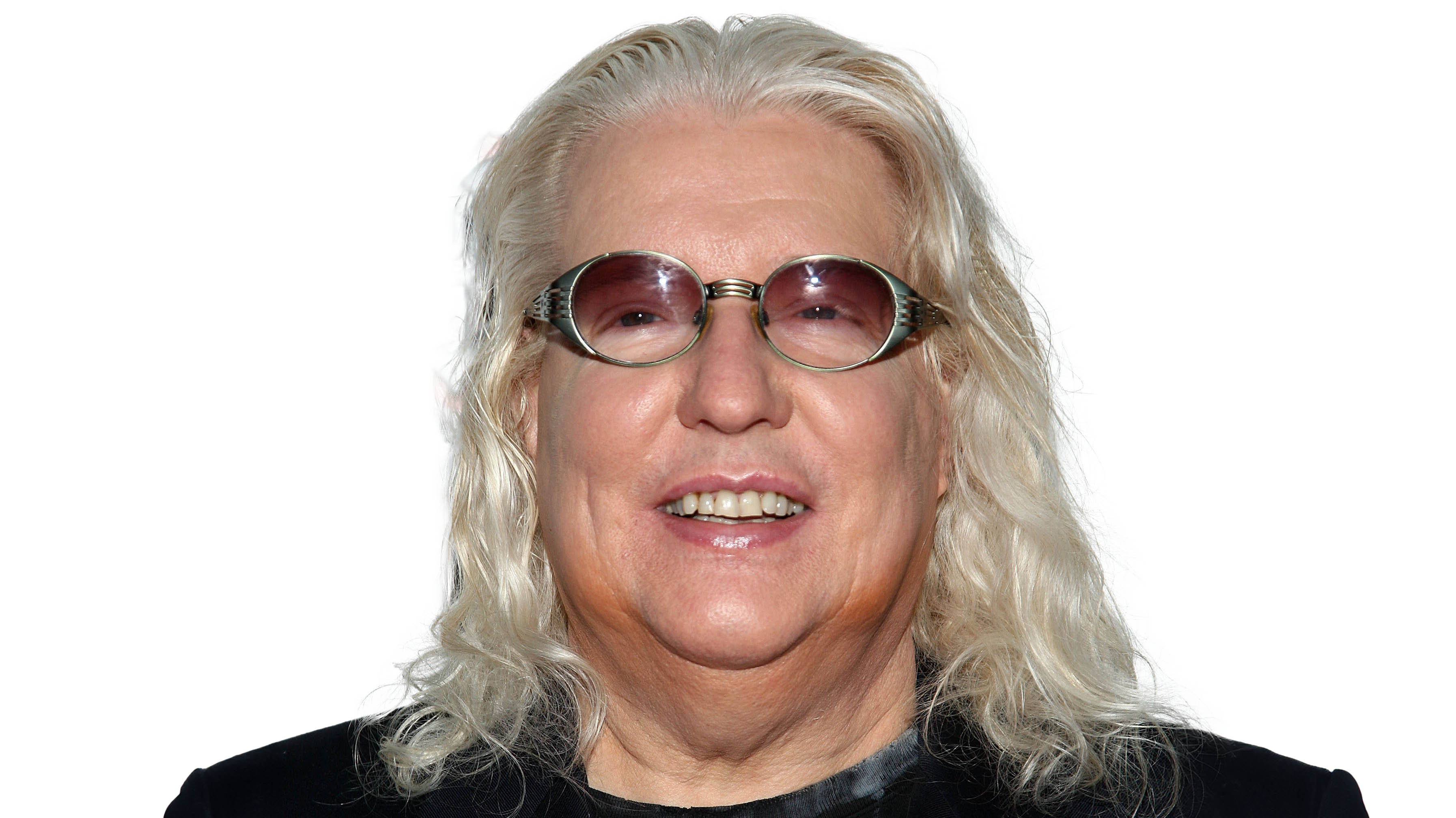Hawxx: "We definitely have an awareness that the metal and rock scene has a really long way to go in terms of diversity and being a safe gig space for women, trans people and non-binary people"
Interview: Guitarists Anna Papadimitriou and Hannah Staphnill on their musical mission, winning fans, playing fanned frets and joining the Jackson guitar roster ahead of their debut album
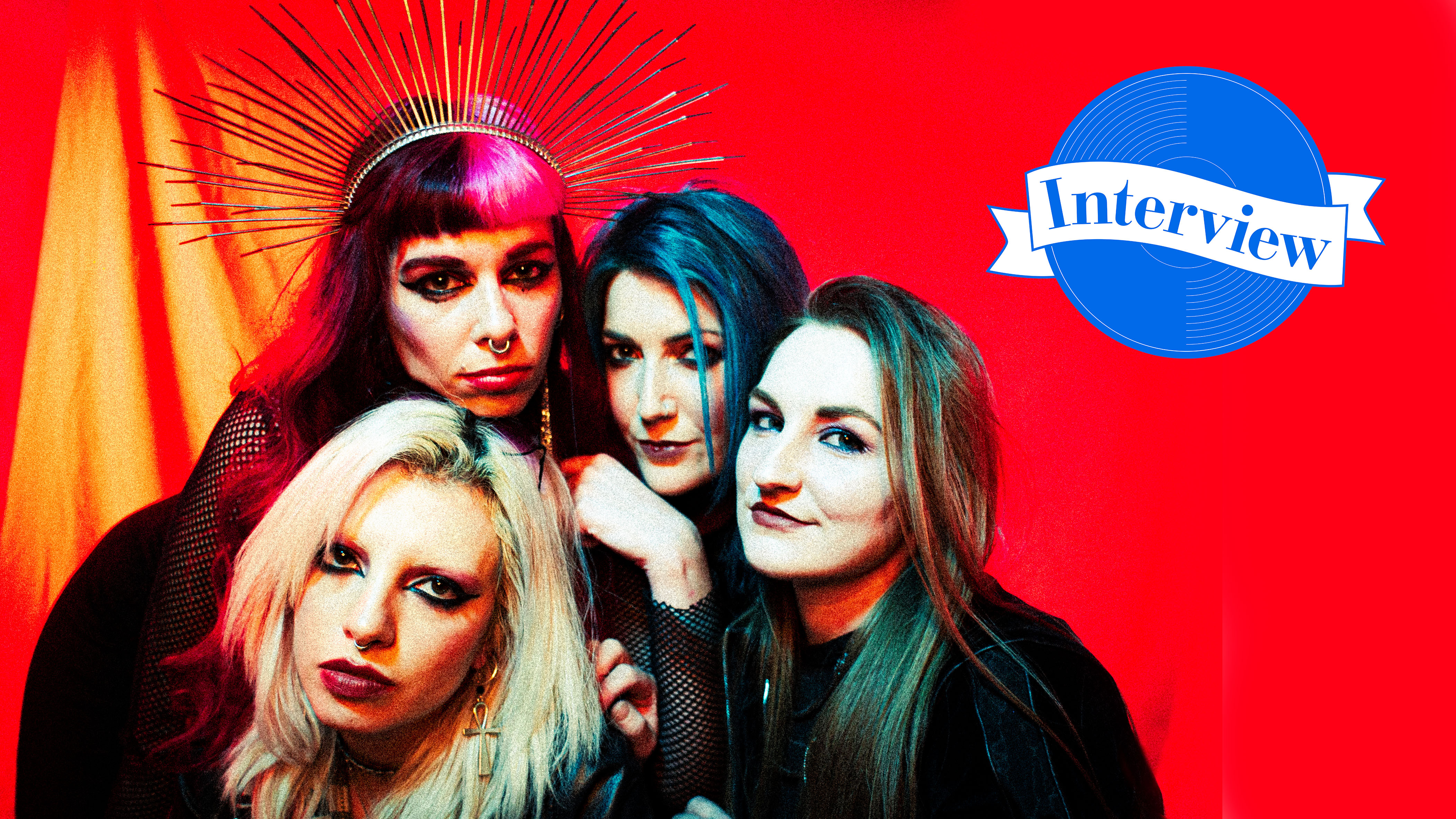
Hailing from London, but consisting of an international line-up of musicians from England, Wales, Greece and Italy, Hawxx are one of the fastest rising alt-metal bands on the scene today. They fuse punishingly heavy riffs and technical proficiency with melodic songcraft, four-part vocal harmonies, and purposeful lyricism that champions self-empowerment and rails against oppressive beauty standards and violence against women.
Guitarists Anna Papadimitriou and Hannah Staphnill make up the band’s Greek and Welsh contingents respectively. The pair first came together around the end of 2018, when the then bandless Papadimitriou would frequent Waterloo’s Alaska Studios for solo rehearsal sessions. At the time, Staphnill was working there as an engineer.
“I could just hear her through the wall,” she recalls. “I was going to say yes to pretty much anything Anna offered because I was so impressed at what she was doing by herself. It didn’t sound like there was any way it was coming from one guitar and one person!”
“It was one of those moments where you just know,” adds Papadimitriou, who had originally invited the classically trained, multi-instrumentalist Staphnill to join her for a jam in a keyboard playing capacity. But then, as she recalls, “Hannah cracked out a guitar and absolutely destroyed it!”
With the duo’s interlocking fretwork at the heart of the HAWXX sound, the all female line-up is completed by Jessica Dann on drums and Julia B. Cadau on bass. In just a few short years, they’ve accumulated a loyal following known as “Kettleheads”, released an acclaimed EP and several heavy-hitting singles, won the PRS Women Make Music Award, toured as openers for Tremonti, become official Jackson endorsees and landed a spot on the bill at Download 2023 - a heady concoction of “dream come true type of stuff,” as Staphnill puts it.
We caught up with the guitarists – who always come as a pair – to hear all about writing and crowdfunding their debut album, their love of big riffs, drop tunings and “pointy” guitars, and why a hearty dose of “feminist rage” is just what modern metal needs…
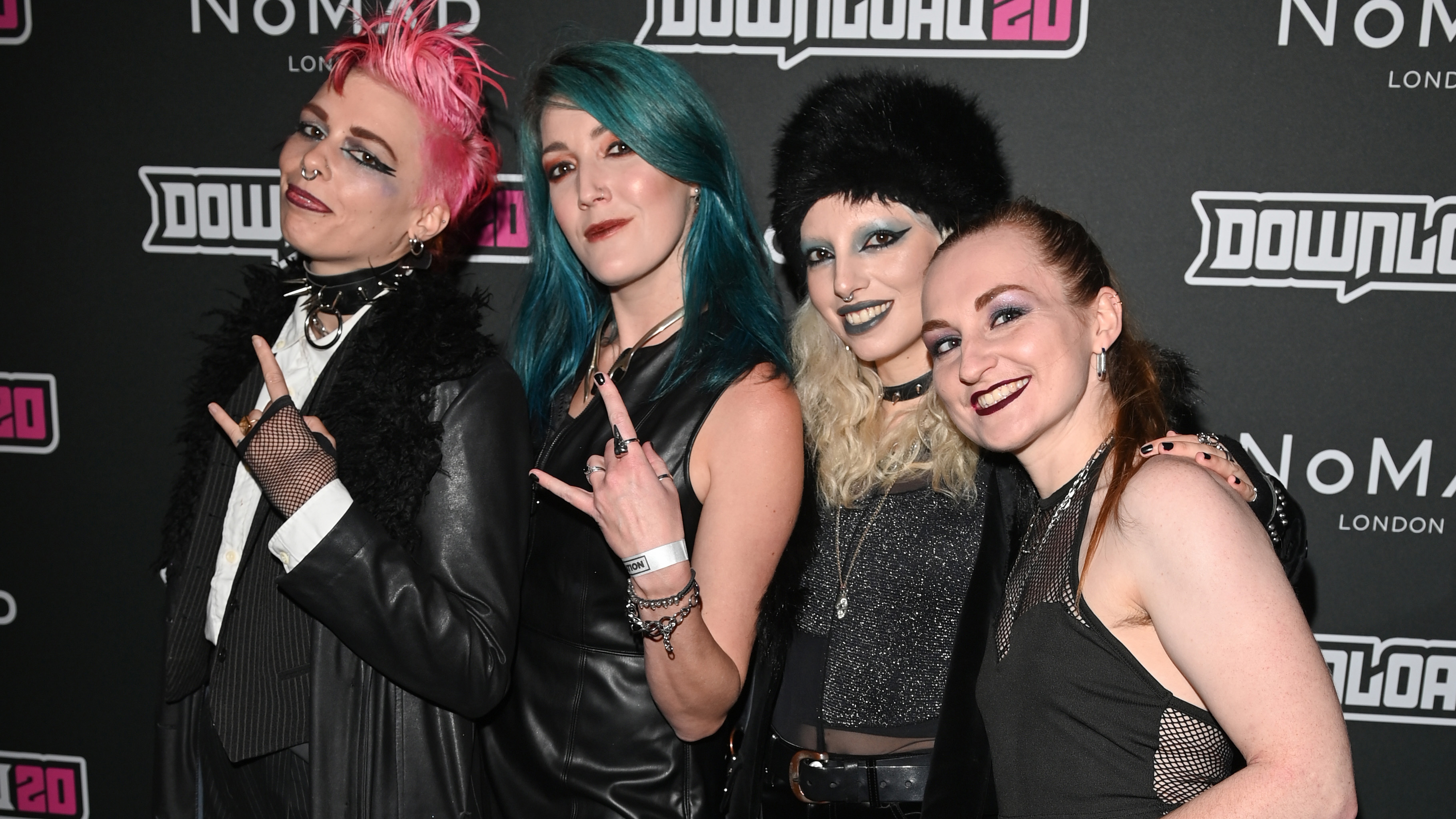
At our gigs, we always invite women to the front, and we just want to change what a metal show means
What is the HAWXX mission statement?
Get the MusicRadar Newsletter
Want all the hottest music and gear news, reviews, deals, features and more, direct to your inbox? Sign up here.
Anna: Well, we definitely have an awareness that the metal and rock scene has a really long way to go in terms of diversity and being a safe gig space for women, trans people and non-binary people. There are quite a few artists out there now that are starting to create that.
"We want to be part of that as a feminist band, and we really want the feminist voice to be one that’s heard and that’s loud in the metal scene. At our gigs, we always invite women to the front, and we just want to change what a metal show means."
Do you foresee a proximate future where it isn’t seen as somehow anomalous to be female and doing the kinds of things that you’re doing?
Hannah: "Hopefully. The more people do it and the more people see it, the more people think it’s normal. I’m hoping that it’s an upward trajectory. I feel really, really lucky that I’ve met people who’ve got the same ethos and who are complete badasses."
Anna: "Even though it’s still rare to see all-female bands, I think it’s about actively breaking expectations as well. There are certain expectations of what it means to be a woman with an instrument, and what you should look like on stage. Actively breaking those expectations seems to be happening a lot more now, so it’s looking good for the future!
Hannah: "It’s also exciting to hear a different perspective in songwriting, as well as different subject matter and different lyrics. You need that, you need something different."
Anna: "Especially because metal – when you feel something really intensely – is the perfect outlet. You’re blasting your soul with that heaviness. It’s awesome if you can pair that musical intensity with subject matter and with rage - with feminist rage and all the things that we’re up against. It’s such a good outlet for that.
How did you both first get into playing the guitar and accessing heavy music?
Anna: I got into guitar through Greek folk music when I was 10. I had piano lessons when I was really young, didn’t gel with it, had a really horrible teacher and it just didn’t work. Then, my parents took me to this night of Greek music in Athens, and I was like, 'Oh my God, that’s what I want to learn!'
"I then became a real classical guitar nerd. I was going to go down the conservatoire route, but felt like I didn’t fit in that world at all. I had this inner rebellion of wanting a seven-string, of getting into metal, going underground and being like, 'screw you all!'"
Hannah: I was a classical pianist and I was at Grade 8 when I was 12 or 13. Then, I had major spinal surgery and I couldn’t actually sit at the piano anymore. I was in bed for hours and hours, and I had exhausted the TV options that were available, so my Mum, who had this old nylon string folk guitar, taught me about four chords, just to pass the time because I was going a bit stir crazy. I learnt that, got really into playing and then bought my first Peavey Predator electric guitar! I fell in love with it - it was my saviour.
"The guitar is such a flexible instrument and you can do so much with it. I was playing some classical stuff because I’d translated it from the piano, but I was getting into Metallica as well."
It’s interesting that the path to heavy metal badassery often begins in the classical realm. Was there a crossover in terms of technique or discipline for you?
Hannah: "I never did the neo-classical metal crossover stuff. It was more fingerpicking and playing Bach on a nylon string. But it probably did help. Learning any instrument, you’ve got to be so disciplined anyway to spend that many hours on it.
"The more technical music you like, the more you might want to play that, so I quickly went from Stereophonics and playing four chords to feeling that there was more out there to learn. The more technical music you like, the more it pushes you."
Anna: "I also had a few lessons with Martin Goulding. He’s an absolute monster, so learning the shred fundamentals from him was fun!"
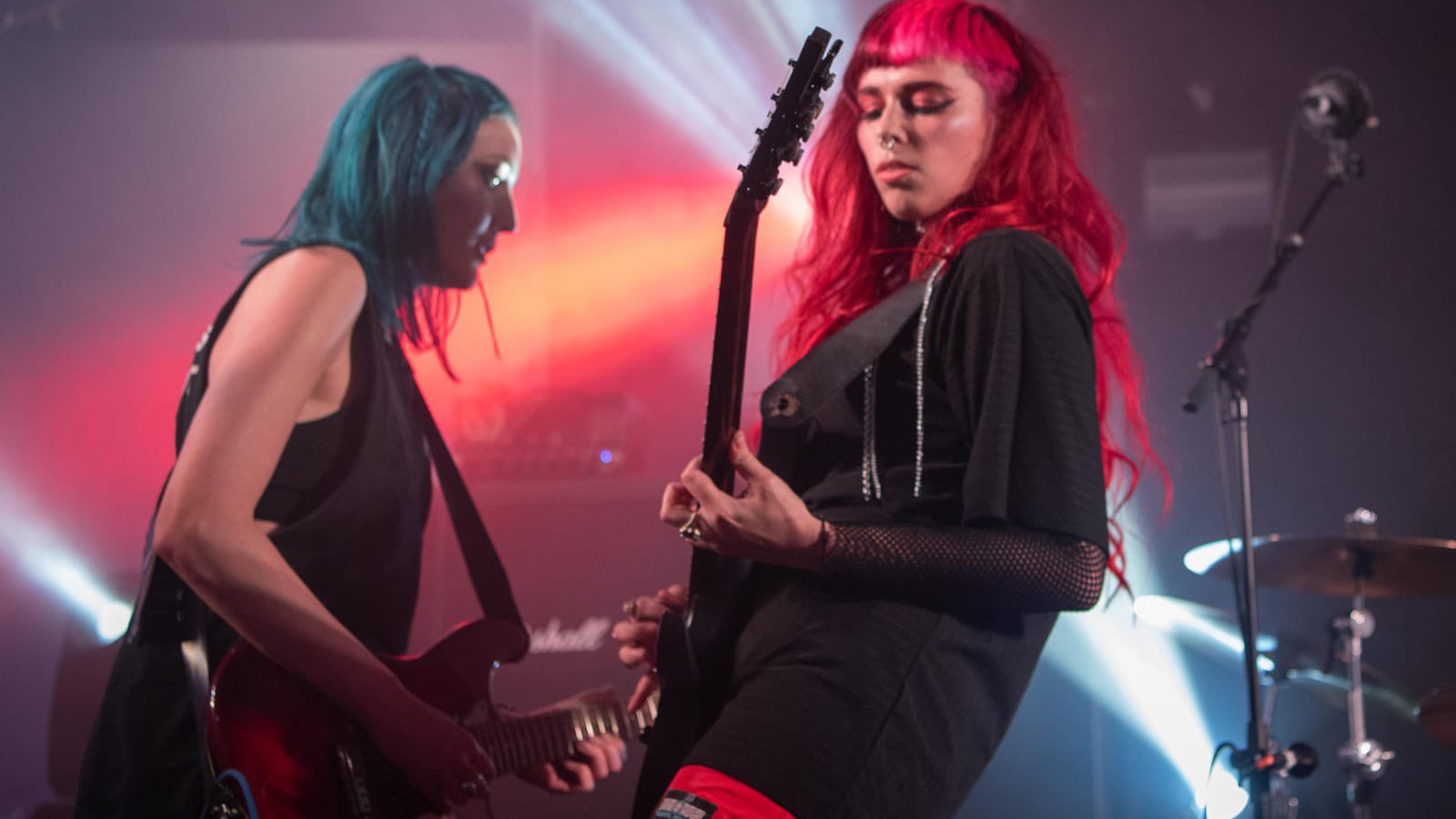
Hannah’s guitar tone plays a big role also in bringing us into this wall of sound chaos, which I think gives us more of a signature sound than just riffs
While the Hawxx sound could be described as 'technical metal', it feels as though you care equally – if not more – about writing meaningful songs as you do about coming across as slick technicians. Is that a fair assessment?
Anna: "That’s exactly it. I think if it is technical, that comes from the world of the song, as opposed to the riff determining whether we do something really technical and flashy. Hannah’s guitar tone plays a big role also in bringing us into this wall of sound chaos, which I think gives us more of a signature sound than just riffs.
"We spend a painstaking amount of time on lyrics. I love that we’re both such purists and have to get into all of it so it comes across in the right way."
Hannah: "It’s so it comes across in the right way, and also so you can be the proudest that you can be of what you’ve created. The song comes first."
A post shared by HAWXX (@hawxxmusic)
A photo posted by on
You’ve released a fair few singles and an EP so far, but what can you tell us about plans for your debut album?
Anna: "It’s happening! Hypothetically, one’s coming out next summer. We’re going on tour at the end of the month again, but this is supposed to be writing time."
When you say 'hypothetically' are you alluding to the fact that you’re doing all this without major label support and going down the crowdfunding route?
Hannah: "Yeah, we’ve been super lucky so far. Our fans helped and donated towards our first music video, Death Of Silence and that went on to win two or three music video awards.
"We’re so appreciative, especially with the message of that song being everyone coming together and overcoming something, and then everyone helped us to actually make it a reality. It was very special. So, yeah, we’re calling on them again. Our fans are amazing!"
Anna: "We are so lucky! We’ve also got a lot of money to raise. We still need to raise 10 grand."
It means the world when you’ve really connected. I’d have absolutely loved that growing up, but there was nothing like it
Musically speaking, what have you got up your sleeve for the record?
Anna: "You can definitely expect a lot of heaviness. We’ve also been really enjoying working with our four-part harmonies lately. The fact that Jess, our drummer, also is singing now is awesome. There has been talk of some kind of an acapella interlude, playing with our four voices. That’s a really distinctive part of our sound - the wall of sound harmonies.
Hannah: "The newest single, The Worst Thing is going to be on the album. That probably has the most punky energy of anything we’ve done, which we’ve been enjoying and will play with more – lots of fast-paced stuff to get people moshing."
Anna: "At the single launch for The Worst Thing, we had a wall of death in The Black Heart in Camden, which made us realise we need more songs to make that happen! It was such a euphoric moment."
In the metal community, triggering a wall of death is quite the compliment. It must be very rewarding to have people react so strongly to your music…
Hannah: "It’s definitely one of the things that drives us. It can be instant feedback like that, which feels amazing, but also when people – especially women - come up to us after and say, “I needed that.” It means the world when you’ve really connected. I’d have absolutely loved that growing up, but there was nothing like it."
Anna: "There’s also an element of putting yourself on the line when you’ve got messages like ours in a metal scene. You don’t necessarily know how people are going to respond.
"We did have a gig recently in The Netherlands, where we said the same things we always do – spoke about violence against women and invited women to the front – but the response was really different. So, you’re bracing yourself for not knowing if it’s going to go well or not, and that’s quite a vulnerable position to be in.
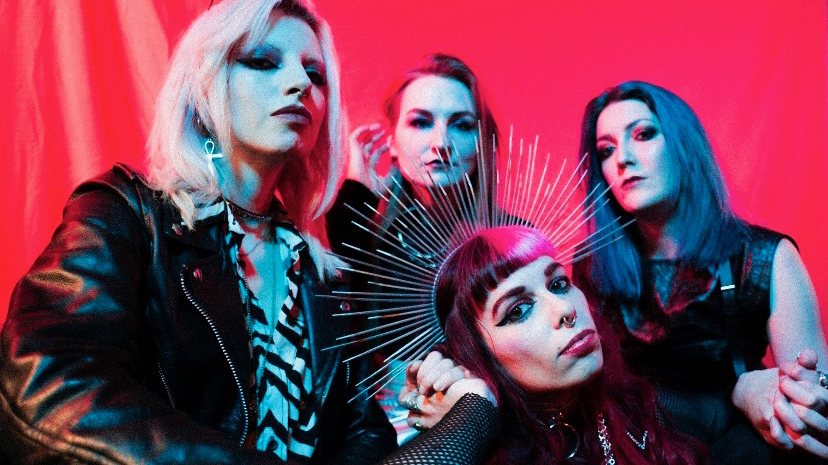
How did that side of things go when you were touring as the opening act for Tremonti and playing to crowds who perhaps weren’t as familiar with you as those at your own headline shows?
Anna: "Tremonti’s fans were pretty cool! We had an amazing time on tour and I felt like our message really landed. I think, when you’re the opening band, there can be a vibe of 'We're not here for you, so get on with it! Entertain me and don’t put me in a dark headspace!'
"We didn’t know what to expect because we’re different vibes, but we were made to feel really welcome, by the fans and by the band. It was a really positive experience."
At our last show, someone referred to Hannah as ‘The Duchess Of Dive Bombs’
What are the tools of your trade in terms of guitars?
Anna: "We just got endorsed by Jackson in the summer, so the Pro Series HT7 MS Dinky is my new pointy boy!
"The finish is called Eureka Mist, which means it’s a different colour in loads of different lighting: it’s brown, purple sparkly, pink and orange. It’s got Fishman Fluence pickups, which I like. They're meaty!
Hannah: "I’ve got a Jackson Rhoads Concept Series 24-fret HS. I’m really pleased it’s called ‘HS’ because those are my initials as well, so I can pretend it’s my signature! I’m really, really enjoying it. It’s kind of ridiculous!
"When we went to the showroom, I was like, 'Can I pull this off?' and Julia and Anna encouraged me to get it. It’s spectacular, so light, thin and easy to play. I hadn’t realised how heavy my other guitar was, but this is like air.
"I’m also enjoying the whammy action. You can go full dive bomb without worrying about breaking your guitar!
Anna: At our last show, someone referred to Hannah as ‘The Duchess of Dive Bombs’.
Hannah: I do absolutely annihilate the whammy, so it needs to be pretty structurally sound!
A post shared by HAWXX (@hawxxmusic)
A photo posted by on
Tube amps are great, but you need something that can really take a kicking
Anna, did the fanned fret design of the HT7 MS Dinky take much adjusting to?
Anna: "Well, I had an Ibanez – don’t tell Jackson – that was also fanned fret. Honestly, for me, it clicked immediately and actually made more sense. Now, I find straight frets weird, like they’re not leaning in the right way. It’s not good for chordy stuff, but I don’t do much of that!"
What other items of gear are most essential to your sound?
Anna: "We’ve got Kempers now. It’s funny because there was definitely a point where I thought I would never get a Kemper. I was all about the amp and the hot tubes and all of that. It’s funny how things progress."
Hannah: "They offer flexibility and are good when you’re hauling stuff around. I tend to humanise my gear and apologise to these inanimate objects if I knock something. I always felt bad if you’ve got a head with tubes in it, and you have to move it at the end of a gig when it’s all really hot. I’d be like, 'I’m so sorry, this is really not good for you!' I always felt bad doing that. Tube amps are great, but you need something that can really take a kicking!"
As divisive as the profiler vs. real amp debate can be, they are undeniably amazing things…
Hannah: "They’re very practical and I don’t know if we’ve got the best out of them yet. There’s almost too much choice. It’s not good out of the box. You have to really sit with it and find exactly what you need out of it. I think there’s definitely work to be done in terms of tone and effects, but we’ve got a good base."
Anna: "It’s funny because our Kempers are screwed into the same rack, so they come as one. So, working with them, we always have to be together. Hannah and I also come as one in terms of any interview or magazine that’s written about us, which I find really lovely."
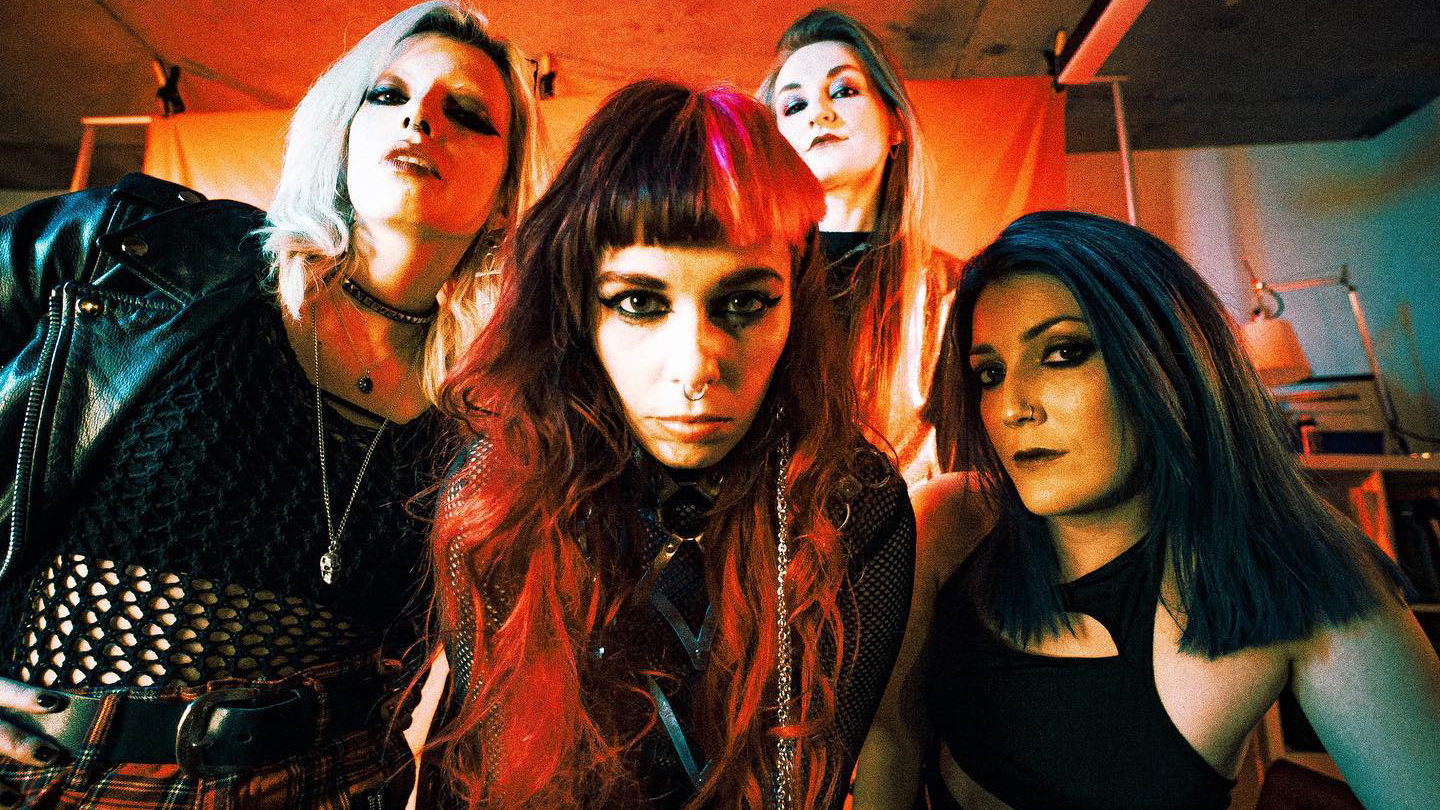
What I don’t like to do is double up on the guitars a lot. What’s the point? If you’ve got two guitars in a band, have something different going on
Does your approach to writing follow suit, and do you always work on everything together?
Anna: "I don’t think we ever start from scratch together. Normally, the way I like to do it, is to get a skeleton of a song together – a riff and an idea of what the song’s about, or a vocal melody – and then we’ll workshop that together. Or, Hannah will do her own draft of the instrumental structure of a song, and then we’ll layer that together.
Hannah: "Normally, Anna’s got a very clear idea of what a song’s about, so I can take inspiration from that, and that’s when I can really jump on with the second guitar.
What I don’t like to do is double up on the guitars a lot. What’s the point? If you’ve got two guitars in a band, have something different going on. It’s an extra voice and you can create an extra dimension. I’ll always try and add something else. If the riff is working as it is, I leave it alone.
"On Heart Play Dead, it’s a breakup song – a very painful song – so I brought that harmonic wail. I was thinking about how to convey pain, so I’m just wailing over the riff. Again, you’ve got to serve the song and what it’s about."
A post shared by HAWXX (@hawxxmusic)
A photo posted by on
We call Hannah’s layering on the top the 'screeching horsie' and my part is the 'bellowing buffalo'. It’s an onslaught!
Does the fact that one of you plays a six-string and the other plays a seven-string mean that you’re also naturally likely to occupy different sonic spaces?
Anna: "Pretty much! I’m definitely in quite low-end territory."
Hannah: "It was going that way, even right at the start when Anna was on the six-string. We naturally fell into those roles. If you’re a lead vocalist, you’re going to want to be doing the meaty riffs, rather than pissing around up the neck!"
There are some very meaty and rhythmically interesting riffs on the tracks you’ve released so far. For you, what are the essential ingredients for a good riff?
Anna: "This is sort of embarrassing to admit, but I find what I really like in riffs is the combination of a ringing low open string, and then some higher rhythmic stuff. That has meant that I will always tune the lowest seven string to the key of the song. I say ‘embarrassing’ because that’s not necessarily necessary! It’s meant that we’ve had to tune between each song.
"Now, we’re bringing it back, but that’s always been a guide for me. I want the riff to be able to speak for itself in that it has the low chugginess, and maybe something scratchy and high up.
Hannah: "A good riff usually has something that takes you by surprise as well."
Anna: "We really like offensive riffs! We call Hannah’s layering on the top the 'screeching horsie' and my part is the 'bellowing buffalo'. It’s an onslaught!"
Other than dropping the seventh string in line with the song’s key, are there any altered tunings that you particularly enjoy?
Anna: "On one of the song’s that’s going to be on the album, the seventh string is dropped to Bb, and the sixth string is tuned to D. The song is in D minor, but the seventh string is tuned to the sixth of the scale. If it wasn’t such a faff to tune to that live, I’d say I’m pretty pleased with that. I really like the effect of the ringing open sixth chord."
Hawxx will be touring the UK this November and December alongside Giant Walker. Tickets are available here. To support the making of their debut album, head to GofundMe
Ellie started dabbling with guitars around the age of seven, then started writing about them roughly two decades later. She has a particular fascination with alternate tunings, is forever hunting for the perfect slide for the smaller-handed guitarist, and derives a sadistic pleasure from bothering her drummer mates with a preference for “f**king wonky” time signatures.
As well as freelancing for MusicRadar, Total Guitar and GuitarWorld.com, she’s an events marketing pro and one of the Directors of a community-owned venue in Bath, UK.
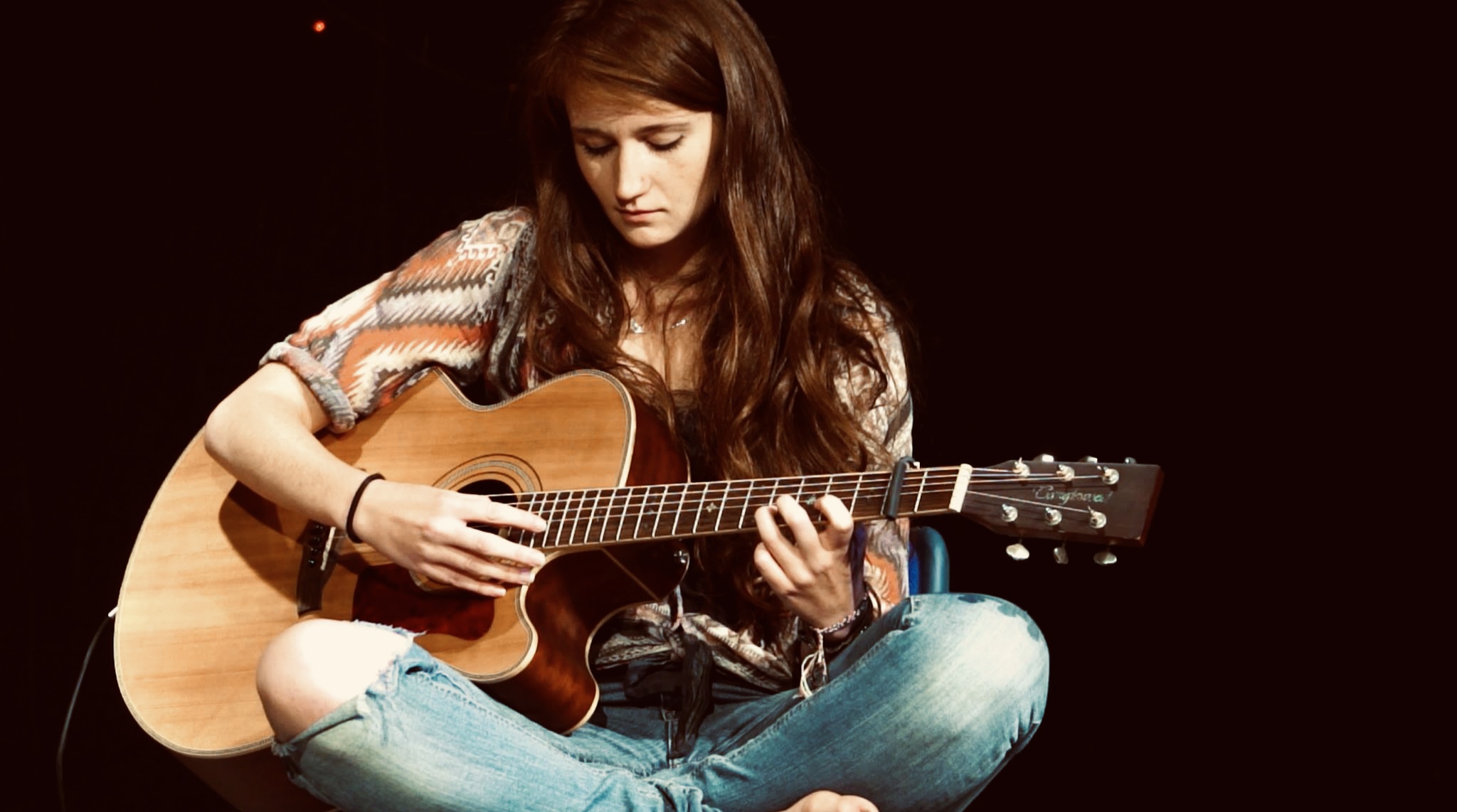
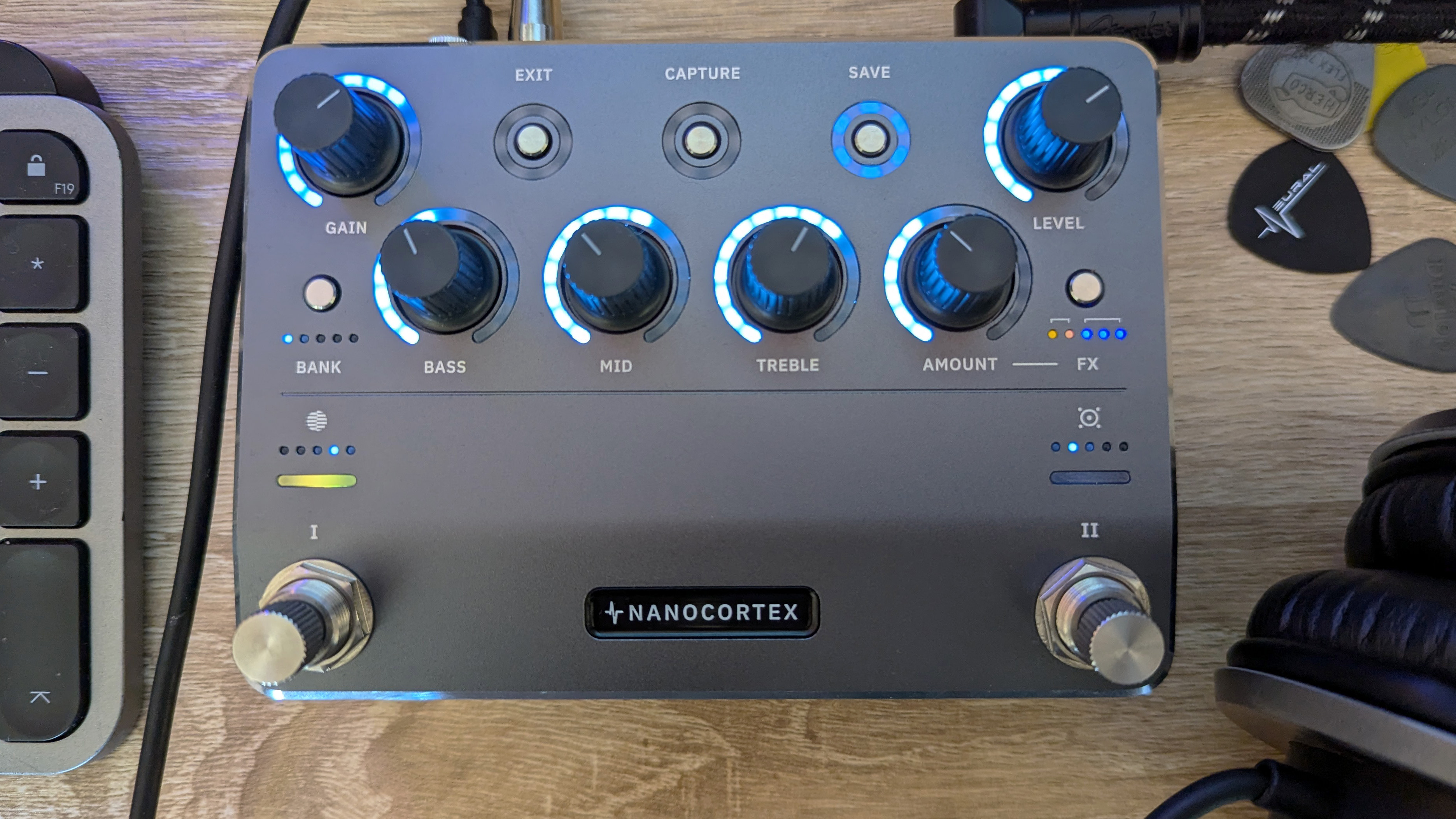
![Gretsch Limited Edition Paisley Penguin [left] and Honey Dipper Resonator: the Penguin dresses the famous singlecut in gold sparkle with a Paisley Pattern graphic, while the 99 per cent aluminium Honey Dipper makes a welcome return to the lineup.](https://cdn.mos.cms.futurecdn.net/BgZycMYFMAgTErT4DdsgbG.jpg)
